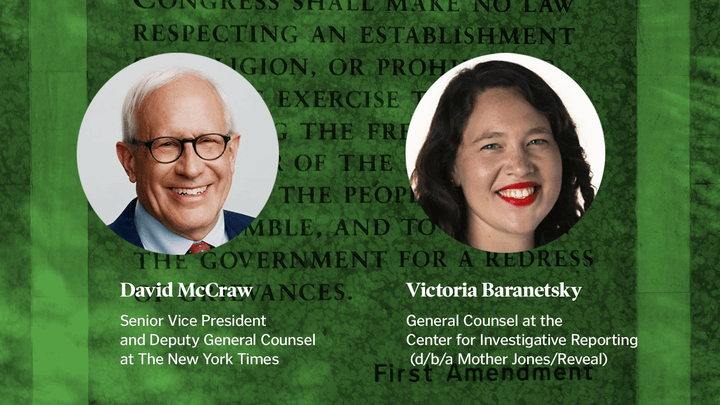Not long ago I purchased yet another edition of “On Writing Well: The Classic Guide to Writing Nonfiction,” written by William Knowlton Zinsser, that prolific author, editor, and teacher who turns 90 this October.
To be honest, Zinsser already looked like an old man when I first met him in 1980 at a journalism conference in New York City. The venue was a fancy ballroom at the Waldorf Astoria. We shared the stage with Ed Bliss, author of a great book, “Writing News for Broadcast.” Zinsser was promoting his own book, which now boasts for the 30th anniversary edition, sales of “More Than One Million Copies.”
I, at the time, was bookless.
I have accounted since that meeting — I’m just guessing — for a dozen or more of those million copies of “On Writing Well,” volumes which have been read, borrowed from, marked up, loaned out, spindled and mutilated.
The old man is still kicking my ass.
When I last checked the Amazon lists, Zinsser held the number 1 spot for all books on authorship. My “Writing Tools” came in at number 4 (and number 16 in digital version). My book ranked number 2115 among all sold on Amazon; his was number 360. There have been many days when my book has been number 2, but even then I continue to eat the Z-man’s dust. I am a very competitive person and don’t want to play Flabby Phil Mickelson to Zinsser’s Tiger Woods.
(As I write these words, I realize that this essay will get him even more sales. On the track of writing books, I am about to be lapped by a novo nonagenarian.)
I am tempted to declare Zinsser’s book as over-rated, the way that the uber-achiever in our category, Strunk & White, is slammed by certain groups of teachers and scholars. I want to drop-kick Zinsser and then body slam the puny writing god, the way that the Hulk dispatches Loki in “The Avengers.” But I just can’t do it.
I can’t do it because of two freaking pages. Two pages.
For the record, they are pages 10 and 11 in my edition. I’ve studied them until my eyes bleed. I’ve shared them with countless aspiring writers, young and old. There have never — I say never! — been two pages in a writing text as practical, persuasive and revealing as pages 10 and 11. Like the music ethos articulated by the likes of Miles Davis and Tony Bennett, Zinsser demonstrates in writing that there are notes in a composition (words in his case) that the artist should leave out.
In context, pages 10 and 11 appear as a set piece between two chapters, one on Simplicity, another on Clutter. “Clutter is the disease of American writing,” writes Zinsser on page 6. “We are a society strangling in unnecessary words, circular constructions, pompous frills and meaningless jargon.” LOL!
“Fighting clutter is like fighting weeds — the writer is always slightly behind. New varieties sprout overnight, and by noon they are part of American speech.” OMG!!
Zinsser is too tough on American writing, unable or unwilling to recognize the natural and necessary redundancies inherent in all language, and that jargon, while inflated, may suit the purposes of specialized groups of writers and thinkers. (“Aristotle, what’s up with all those unnecessary abstractions in your “Nichomachean Ethics“? Simplify, man. Just tell the kid what’s right and wrong.”)
What makes such tough standards tolerable is the way that Zinsser applies them to himself — on pages 10 and 11.
On the bottom of page 11, he explains:
Two pages of the final manuscript of this chapter from the First Edition of On Writing Well. Although they look like a first draft, they had already been rewritten and retyped – like almost every other page – four or five times. With each rewrite I try to make what I have written tighter, stronger and more precise, eliminating every element that’s not doing useful work. Then I go over it once more, reading it aloud, and am always amazed at how much clutter can still be cut. (In later editions I eliminated the sexist pronoun “he” denoting “the writer” and “the reader.”)
What you see on page 10 and 11 is what looks like the typed version of manuscript pages decorated with dozens of proof-reading marks. It begins mid-sentence with this original text:
“[the reader]…is too dumb or too lazy to keep pace with the writer’s train of thought. My sympathies are entirely with him. He’s not so dumb. If the reader is lost, it is generally because the writer of the article has not been careful enough to keep him on the proper path.”
Lean and simple and uncluttered enough for my taste, and yet, Zinsser goes to work: Crossing out “writer’s” and “entirely” and “He’s not so dumb” and “of the article” and even “proper” before “path.” Here’s what’s left:
“…is too dumb or too lazy to keep pace with the train of thought. My sympathies are with him. If the reader is lost, it is generally because the writer has not been careful enough to keep him on the path.”
Zinsser cuts about 20 percent of the original version, a standard he applies throughout pages 10 and 11.
So why am I emoting over this passage? Because it reveals the heart and head of a generous writer. Those pages with those editing marks reveal the mind of a disciplined writer at work. He will not set any standards for us that he is unwilling to apply to himself.
Then there are the deletions themselves and the strategies behind them. Why do we insist on including phrases such as “in the article”? During a brief stint as a movie reviewer, my editor repeatedly cut the phrase “in the movie” from my drafts. Where else would the damn scene be?
Why include “entirely”? Now if your sympathies are “partially” with him, we have another story.
And then there is “proper.” I would never have cut it before “path.” I would have embraced the alliteration and the rhythm of a two-syllable word before a final monosyllable. But Zinsser is right! “Path” contains the meaning of “proper.”
A year or so after I met Zinsser, I invited him to Poynter for one of my first writing seminars. He looked even older than I had remembered, but soon became animated in conversations about the craft. (The great writing teacher Donald Murray was also in attendance.) I broke in to the talk with this exercise: I had retyped and made copies of pages 10 and 11 — but without Zinsser’s editing marks. Each writer had to edit the text with the goal of cutting unnecessary words. “Get rid of the clutter,” I said.
What happened next was revealing and endeared Zinsser to me forever (damn him!). With a sincere but puzzled look, he admitted that he couldn’t figure out what he had cut from his original text. There were problems he could not solve. And solutions he could not remember and re-create. That, my friends, is the vulnerability that all apprentices feel — and some masters, as well.
Happy Birthday, William Zinsser, you old goat. Enjoy your 90s, but don’t look over your shoulder.








Comments